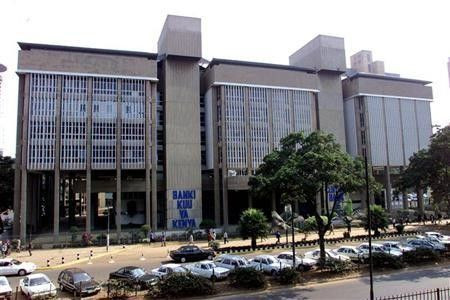Kenya lawmaker seeks to regulate banks' lending rates

A Kenyan member of parliament said on Tuesday he would propose a bill to regulate banks' lending and deposit rates to stop their 'sheer exploitation' and to mobilise funds for economic activities.
Martin Ogindo, legislator for Rangwe in western Kenya, said the bill would set the minimum deposit rate at 70 percent of the central bank rate and cap lending rates at no more than 400 basis points above the rate.
Although the central bank rate has been at around 6 percent for the past year, before being raised to 11 percent earlier this month, most banks have been charging a minimum of 14 percent for lending, while paying a rate of less than 2 percent on customer deposits.
There has been a tendency of banks to engage in sheer exploitation and this needs to be regulated, Ogindo told Reuters by phone.
This is a bill that seeks to regulate interest rates. Interest rates are very critical for economic growth and money is a commodity. Of all commodities, I don't know which is more basic than money. Everyone needs money, he said.
Ogindo accused banks of restricting economic activities through exorbitant charges, which lock out many would-be borrowers and depositors.
Businesses and officials have long complained of high commercial lending rates, which they say hinder economic growth.
The banks blame high business costs, a slow and unreliable judicial system that hampers the recovery of bad debts, and the expense of securing collateral such as land deeds for the high lending rates.
Ogindo said there is a need to raise deposit rates in order to encourage savings that can be tapped for development.
A country needs to have savings. We need to accumulate savings for investments and if there is good returns on savings, then more will be available, he said.
He rejected claims that the bill, which will be tabled in parliament in the next few days, would go against the country's free market economy.
We are not interfering, we want this market to be for as many people as possible. If anything, we are freeing the market we are not limiting the market, the legislator said.
An attempt to regulate rates through parliament in 2001, which was known as the Donde bill, ended in failure after it was diluted and the relevant ministry refused to implement it.
Ogindo said he did not expect a similar fate for his initiative at a time when politicians are more concerned with economic growth prospects in a high inflationary environment.
Circumstances have changed ... anybody who does not want to open up the economic space for more people is just the enemy of this country and the people of this country, he said.
© Copyright Thomson Reuters {{Year}}. All rights reserved.





















